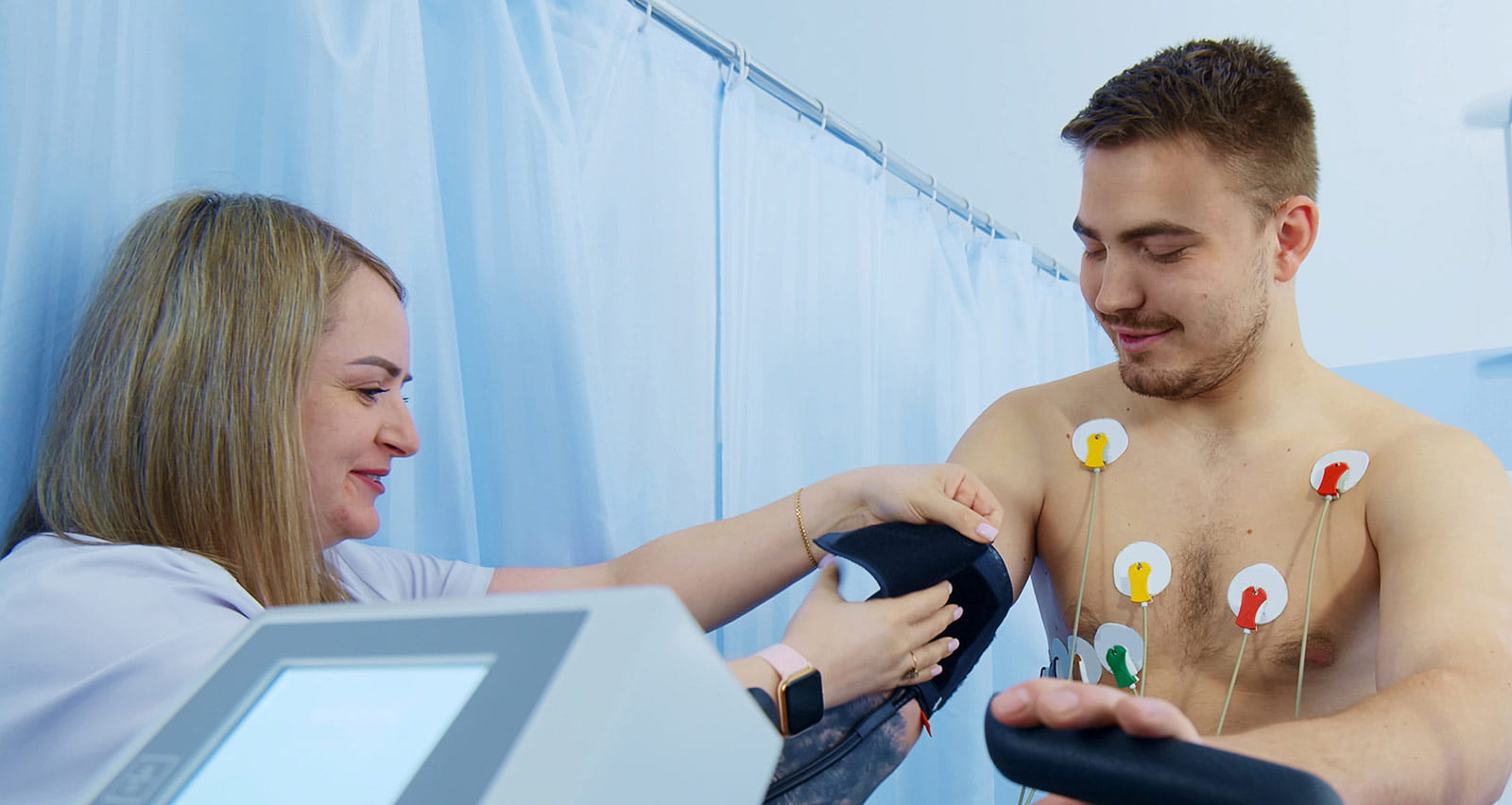
Arrhythmogenic Cardiomyopathy
Arrhythmogenic cardiomyopathy (ACM) is a rare, inherited type of heart disease that can affect one or both ventricle chambers of the heart. It’s caused by a genetic defect that prevents heart muscle cells from developing properly. Over time, the cells are replaced by scar tissue and fat, which disrupts the heart’s electrical signals and can cause life-threatening arrhythmias.
With treatment, many people with ACM can live normal lives. However, medical monitoring and expert care is essential to avoid complications such as heart failure and sudden cardiac death.
Your health is important. Get expert care.
For an appointment with one of our cardiomyopathy specialists, call 216-844-3800.
Schedule with a cardiomyopathy specialistSymptoms of ACM
When the disease is in its early stages, there may not be any symptoms. As the disease progresses and the heart muscle becomes more unstable, symptoms may include:
- Chest pain or discomfort
- Lightheadedness and/or fainting
- Shortness of breath
- Abnormal heart rhythms or palpitations
- Fatigue
- Swelling in the legs, ankles or abdomen
How Is ACM Diagnosed?
If a patient has any of the symptoms listed, a complete family and medical history will be taken and a physical exam performed. If ACM is suspected, or if someone in your family has the condition, one or more of the following diagnostic tests may be performed:
- Chest X-ray. Evaluates any enlargement of the heart.
- Cardiac Magnetic Resonance (CMR) scan. A non-invasive test that uses magnetic radio waves to generate a detailed image of the heart.
- Electrocardiogram (ECG). A non-invasive test that measures the electrical activity of the heart by recording the signals it produces.
- Echocardiogram. An ultrasound exam to evaluate the heart’s motion, blood flow and pumping efficiency of the ventricles.
- Exercise stress test. Evaluates how well the heart performs during exercise.
- Genetic testing. A blood test that looks for the defective protein that causes ACM.
Personalized Treatment Plans for Arrhythmogenic Cardiomyopathy
The treatment(s) for ACM depends on how advanced the disease is and the severity of symptoms. Although there is no cure, treatment can help manage symptoms, improve quality of life and reduce the risk of complications.
Treatment plans may include one or more of the following:
- Lifestyle Modifications
-
In some cases, if ACM is detected early, lifestyle modifications can help manage symptoms and slow the progression of the disease. Recommendations may include:
- Reach and maintain a healthy weight
- Eat a heart-healthy, low-sodium diet
- Quit smoking
- Limit or eliminate alcohol use
- Manage stress levels
- Monitor fluid intake
- Get enough quality sleep
- Avoid high intensity exercise
- Medical Therapies
-
In addition to lifestyle modifications, anti-arrhythmia medications, ACE inhibitors or angiotensin II receptor blocks may be prescribed to help control the rate and rhythm of the heartbeat.
- Implantable Devices
-
Because an irregular heartbeat is a common symptom of ACM, artificial pacemakers and implantable cardioverter-defibrillators are often recommended as part of the treatment plan. These devices may help to prevent complications such as heart failure and sudden cardiac death.
- Minimally Invasive Procedures
-
In some cases, a minimally invasive procedure to reset the heart rhythm to a normal pattern may be recommended. Procedures may include:
- Cardioversion: Resets heart rhythm but sending a strong, electrical impulse to the heart muscle.
- Catheter ablation: Resets heart rhythm by applying heat to seal off electrical paths that aren’t working properly.
Make an Appointment
Your health is important. Get expert care.
For an appointment with one of our cardiomyopathy specialists, call 216-844-3800.


